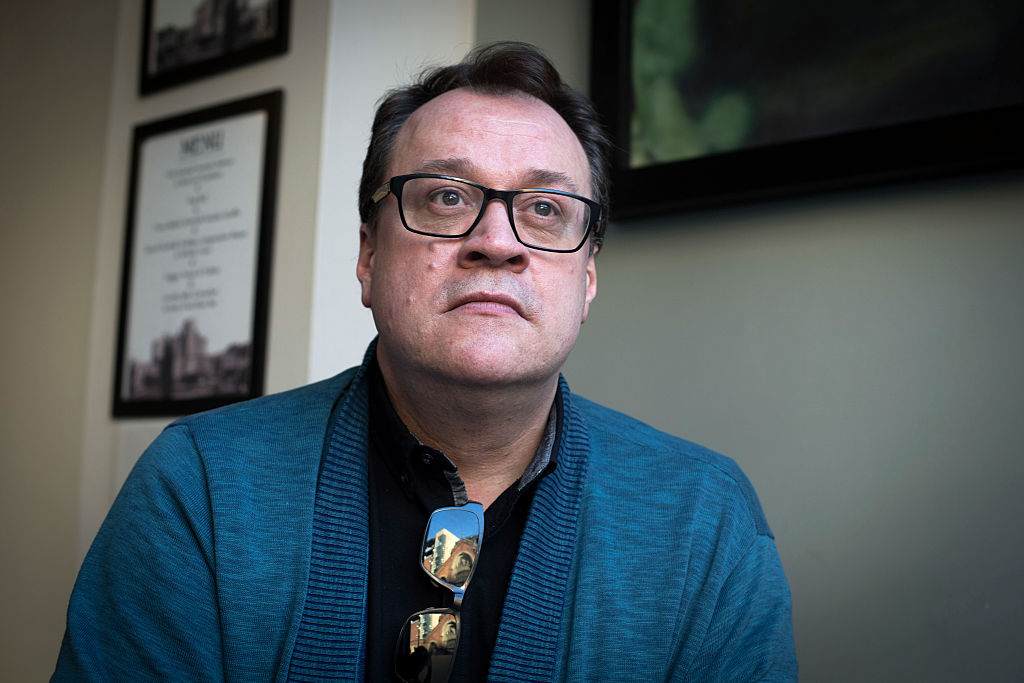British television screenwriter and director Russell T Davies (Colin McPherson/Corbis via Getty Images)
Russell T Davies has warned that we shouldn’t be so quick to mourn the corporatisation of Pride, as it could actually be a positive thing for the LGBT+ community.
The trailblazing gay TV writer shared his thoughts with the drag queen Diane Chorley as a guest on her podcast, Chatting With Chorley.
Diane raised the familiar complaint of exploitative brands “jumping on the Pride bandwagon” only to disappear after Pride month – but Davies presented a different perspective.
“Do you know what Diane, I’m going to say no, I don’t agree with that,” he quickly replied.
“I think on every single board of all those big companies, every Barclays bank, every big shop on the high street, there’s someone on that board saying ‘Let’s not do this, we’re a family company.’
“And there are people on those boards fighting, saying ‘No, we will support Pride’, and the day all those companies disappear, that’s when we need to worry.”
He continued: “Yes, they’re jumping on the bandwagon slightly – don’t live in a capitalist society if you don’t want that, go and live on a raft! But we are capitalist, and if capitalism acts in our favour, I love it.”
While it’s true that some brands back their campaigns with real, meaningful support for LGBT+ issues, the list of those paying lip service is often far longer, and the visible show of solidarity during Pride month can inadvertently increase acts of hate towards the LGBT+ community.
In many cases it changes the very nature of Pride, turning it into a happy parade rather than the protest it once was.
But Russell T Davies believes that change is no bad thing. He recalled living through the “years of starvation” in the 70s and 80s when no big brands would dream of standing alongside LGBT+ people, and warned that it could be “dangerous” to reject their well-meaning support.
“I really think it’s dangerous when we start to criticise those companies, because, alright push them away, have them go, ‘Alright, we’re getting criticised, it’s not worth it anymore,’ [and they’ll be] gone,” he said.
“You watch it when they all go. I think it’s taking gay rights for granted, it’s a very big mistake and you’ll miss them when they’re gone.”
